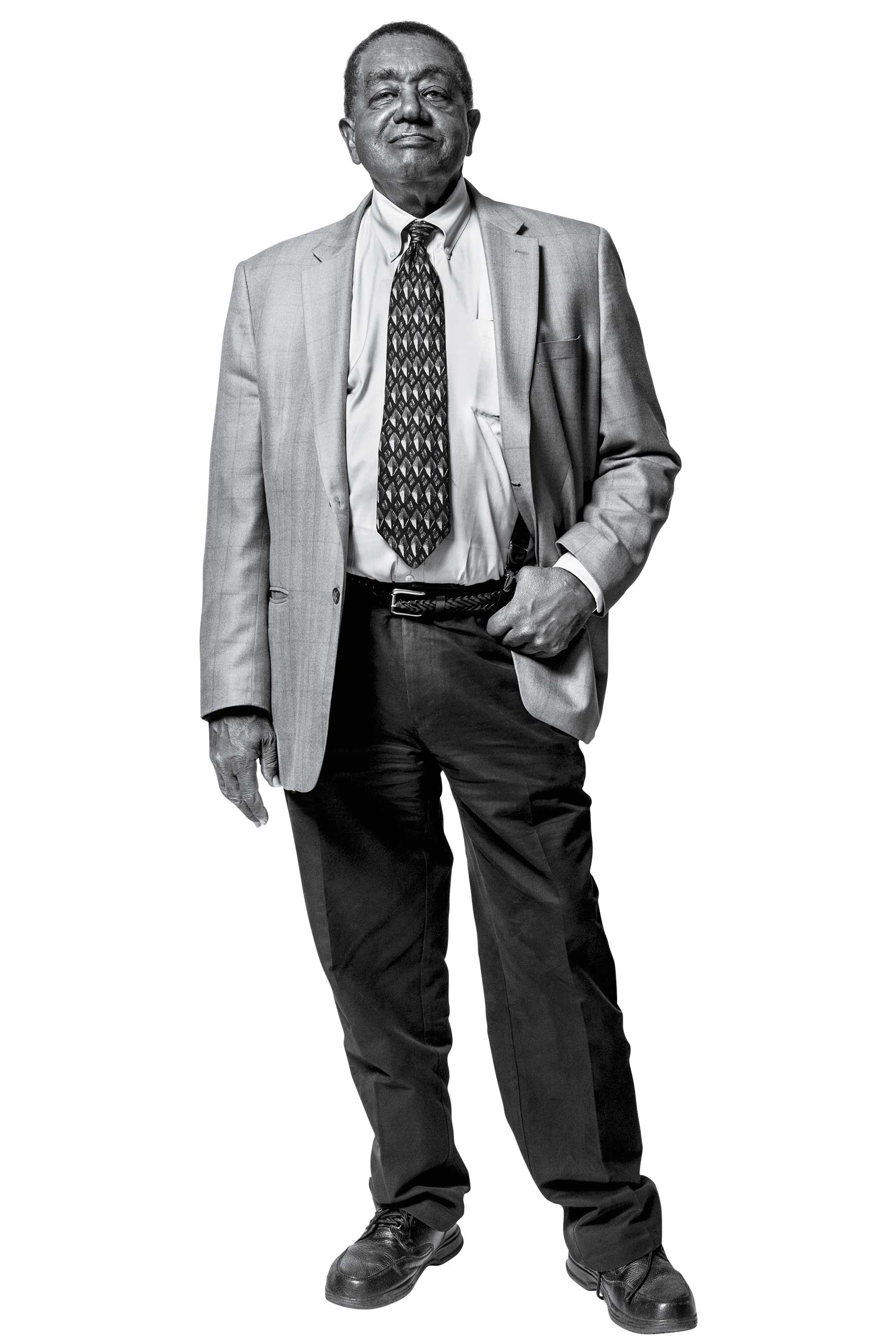
Your new book with photographer Stephen Shames, Power to the People, is full of pictures from the early days of the Black Panther Party. How does it feel to look back at that time?
It feels like yesterday. Because I never stopped being active in one way, shape, fashion or form.
The introduction notes that you want to help people make sense of the present by understanding the past. Where do you see that connection?
Let’s take the Republican efforts, in many states, of voter suppression. When I started the Black Panther Party I was working for the city government of Oakland, Calif. In that framework, young folks were saying, “We’re going to have black power.” I said, “You ain’t getting no power until you get some political power seats.” They said, “I don’t know, those are the white man’s seats.” I said, “You’d better make some black folks and some Chinese folks and some other people of color in some of those seats.”
And now this book comes out at the end of President Obama’s second term. How would you assess his impact on that goal?
He represents the goals we had.
You write a lot about the importance of coalitions across demographic groups. What is the status of that cooperation today?
People are basically working like that. We can’t run around talking about how this is only for blacks. Even Black History Month is not only for blacks. Women’s History Month is not only for women. When I talk to young folks, I try to tell them that we live in an overdeveloped, high-tech, fast-paced, computerized, scientific, technological social order. We have an interconnected global economy evolving all around us. And we have this climate-change factor. It’s for all of us–whether it’s black, white, blue, red or whatever.
But this presidential election has been pretty divisive. What do you think of the way the candidates handle that?
What are you talking about? Donald Trump, the guy is what the people say he is. He’s a racist and bigot, etc. That’s all. I have nothing else to say about that.
The Black Panther Party got its start with armed observance of the police. What do you think of body cameras?
It’s not about the body camera. It’s the people who observe the police with their cameras–that technological observation. Today you do not need guns like we did in the ’60s.
Do you own a gun?
No, I don’t.
Have any of the goals on the original Black Panther Party 10-point platform been achieved?
Originally No. 6 said we wanted all black men and women not to be forced to fight in the war in Vietnam. So we changed that one to we wanted free medical health care for our people. It may not be a perfect health plan, it’s still to be worked on, but that has [happened].
The party was founded on your birthday, Oct. 22, in 1966. How are you planning to celebrate this year?
We have the Raines family–before Snowden, the Raines family stole the FBI’s Cointelpro documents [proving agency surveillance of the Panthers and other domestic groups]–and they’re our guests out here to join this 50th-anniversary celebration. It’s not just my birthday. You can’t talk about Bobby Seale unless you’re talking about all that history we made.
See more at time.com/panther-photos
More Must-Reads From TIME
- The 100 Most Influential People of 2024
- The Revolution of Yulia Navalnaya
- 6 Compliments That Land Every Time
- What's the Deal With the Bitcoin Halving?
- If You're Dating Right Now , You're Brave: Column
- The AI That Could Heal a Divided Internet
- Fallout Is a Brilliant Model for the Future of Video Game Adaptations
- Want Weekly Recs on What to Watch, Read, and More? Sign Up for Worth Your Time
Write to Lily Rothman at lily.rothman@time.com